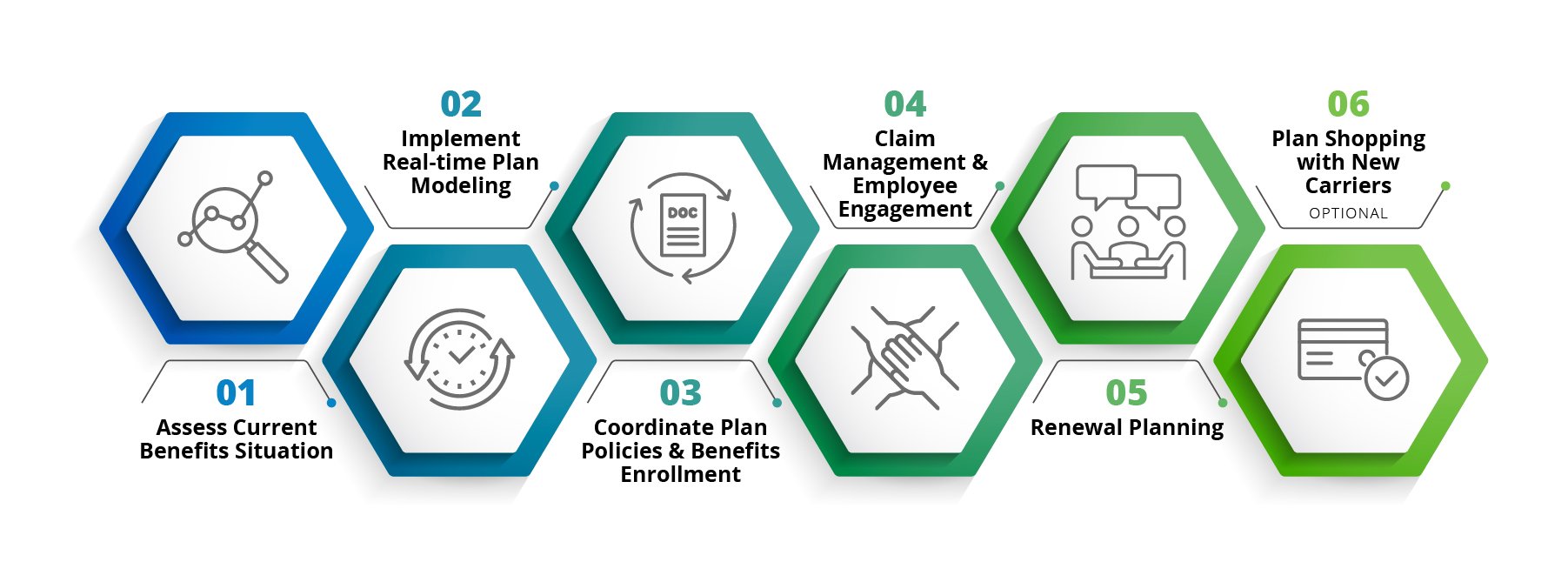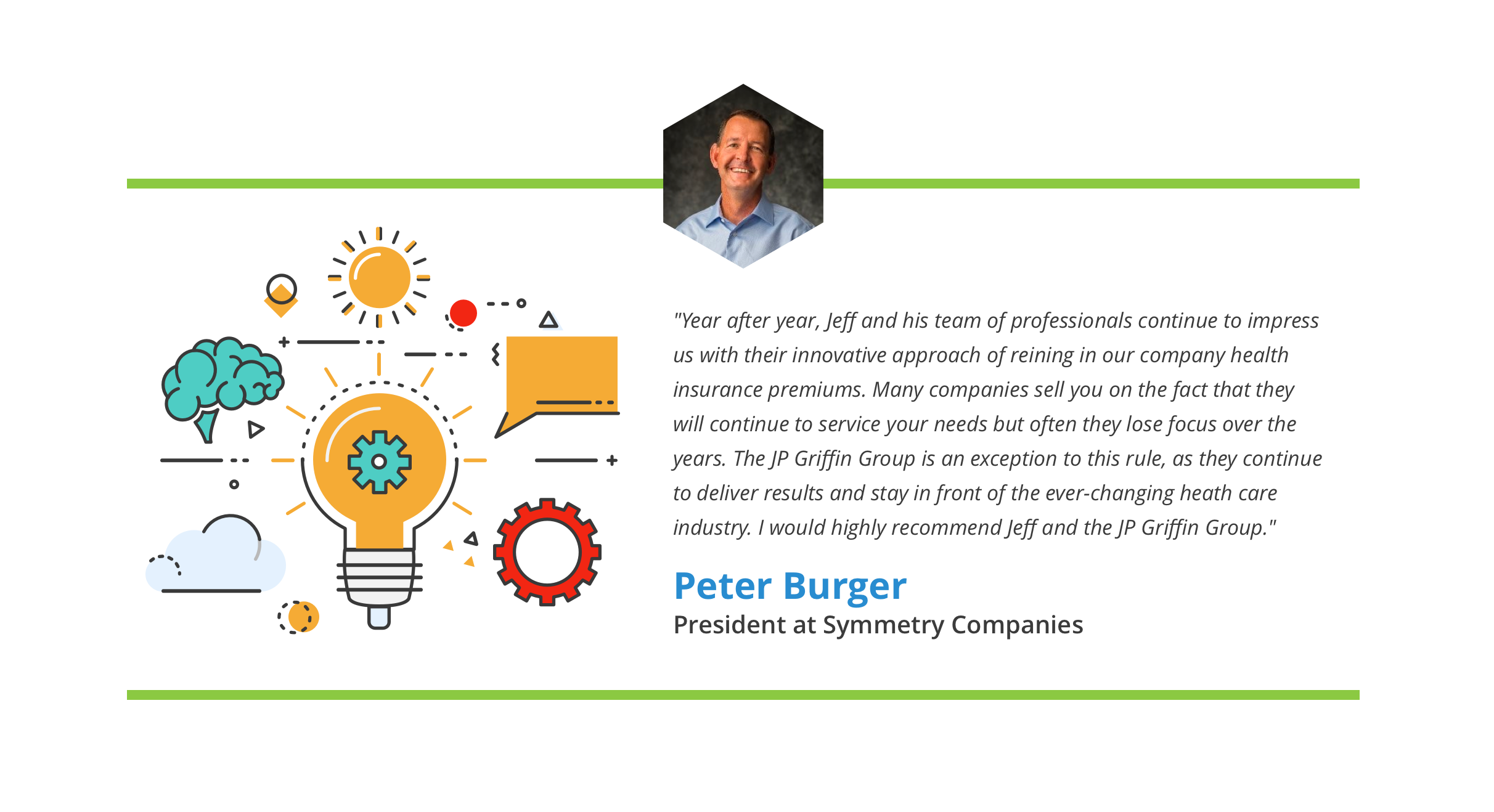
Like all business owners, you’re trying to navigate the murky waters of health insurance and other employee benefits. It’s time-consuming, frustrating, and ultimately not a subject you're well- versed in.
In an effort to help, someone recently suggested you use an employee benefits broker. You’re not even sure what they do and you don’t want to spend extra money on them. You've also heard of other options, such as PEOs, payroll vendors, HR software platforms and the SHOP exchange. How do you sort through all of these options and confidently make the right decision?
We're admittedly a little bias on the topic, but we highly recommend you start this process by simply talking to a benefits broker. If you don't know any (and even if you do), gather a few recommendations from your peers within other organizations. Just make sure you initiate your consultation with a trusted broker who is well regarded in the industry and your market. A broker with a solid reputation will help you quickly assess all of your options and will, in all likelihood, be completely upfront with you in the event they aren't your best option.
If requesting proposals from employee benefits brokers, it's important to inquire about specific capabilities of prospect organizations, most especially as they relate to your primary needs. Download our free guide for 100+ sample questions and scoring template.
Once you decide to move forward with an employee benefits broker, they'll guide you through sound analytical and strategic reasoning for the benefit decisions you are making for your workforce. Employee benefit brokers are far more affordable than you might think and good ones can be invaluable to a business, paying for themselves many times over in the savings they generate for you. Brokers are especially helpful to small businesses with skeleton HR departments but are equally as useful to well-staffed operations.
What Does an Employee Benefits Broker Do, Anyway?

For starters, let's assume we are taking about a well-respected broker who comes highly recommended from your industry peers. Like any industry, there are some bad apples out there and the employee benefits industry isn't immune to them. In fact, due mostly to the massive changes taking place in healthcare and technology over the last decade, you want to make absolutely certain you are only talking to a broker who has kept pace with these changes in terms of their intimate knowledge of the landscape as well as their investment in people, processes and systems.
 Assess Your Current Benefits Situation
Assess Your Current Benefits Situation
That being said, this type of employee benefits broker will help you assess your current benefits situation. This includes a deep dive into all your contracts as well as your claims history. They will patiently educate you on all of your options, and advocate for you if something in the process gets sticky (not that anything involving insurance companies is ever confusing).
Your broker is there to steward the decision-making process so you can feel good about the choices you’re making on behalf of your employees.
When you meet with your benefits broker, you’ll need to bring some essential information. For example:
- How many employees you have
- How many of them qualify for employee benefits
- Knowledge of what you’re currently spending on healthcare
- A good understanding of what your budget is for the coming year
- A list of companies with whom you compete for talent.
Your broker will show you a variety of options from multiple insurance companies and then crunch the numbers with you to determine which is the best fit for you and your employees.
Schedule a complimentary benefits review call for your firm and uncover specific challenges you’re facing with your employee benefits program.
Implement Real-time Plan Modeling
Some brokers utilize real-time plan modeling software which will allow you to immediately assess how plan design modifications will impact your budget. If you are competing for talent in a highly competitive market (and who isn't these days), your broker will also help you assess how your benefits stack-up against the competition by benchmarking with those around you.
Coordinate Plan Policies & Benefits Enrollment
Once you and your broker have locked in your plans and plan designs, the broker will coordinate with the insurance carriers to make sure your group health, dental, vision, life, disability (and other) policies are in place. At this point, brokers like the JP Griffin Group who offer automated benefits administration software will provide the necessary tools to automate the benefits enrollment process and assist you in setting things up. They'll also work to make sure that other systems (like payroll) are working in parallel with the new program.
Claim Management, Employee Engagement & Compliance
Upon completion of your first open enrollment campaign, a good benefits broker stays by your side to:
- Actively help you manage large claims
- Provide daily assistance to your employees who have benefit questions or claims issues
- Help to ensure you remain compliant with federal, state and local regulations
Many brokers, like the JP Griffin Group, will also assist with new hire benefits on-boarding as well as cobra administration for employees leaving the company. Full service employee benefit brokers also assist with formulating a year round communications calendar. These calendars are typically focused on workforce wellness and promotion of benefit programs such as preventative care benefits, new mother maternity programs, biometric screenings, upcoming enrollment periods, etc.
Renewal Planning & Preparation
About seven or eight months into the plan year a broker will then start working on your renewal for the following year. Working closely with the incumbent carriers, they'll assess how all of your plans are performing for the current year and discuss any adjustments that need to be made in terms of plan design. This might include adjustments to employer and employee contributions, HSA funding, deductibles and copay amounts, physician networks, and pharmacy formularies.
This is also when the carriers will propose rates for the upcoming year, assuming you aren't in a multi-year contract. If the rates are unfavorable (e.g. a significant or unjustified increase vs. current year), your broker will negotiate with the carriers in an attempt to obtain a more reasonable and justifiable figure. Talented brokers approach these negotiations with a team of underwriters and actuaries who can address points of contention with facts and figures versus emotion and arm twisting.
Discover how JP Griffin Group delivers innovative, impactful & tailored employee benefits solutions for the modern workforce. Download our capabilities brochure today.
Plan Shopping with New Carriers
In the event that you and your broker are not satisfied with the new rates and/or anything else relating to your incumbent carriers (such as the network overlay, service levels, responsiveness, etc.), your broker will then "go to market" and shop your plans with new carriers. Your broker will present you with new options and handle all the paperwork, feeds, etc., if and when you transition to the new carriers.
How Do Employee Benefits Brokers Get Paid?
Employee benefits brokers are paid in one of two ways: commission or fixed-fee for services.
Commission Payments
The typical way an employee benefits broker gets paid is through commissions. These are paid to the broker by the insurance carriers or Third Party Administrators (TPA). This compensation is disclosed on your Schedule A and then in your annual 5500 filing (providing you have 100 employees or more).
Fixed-Fee for Services
Another way to compensate a broker is through a fixed-fee for services. Some employers prefer this compensation arrangement because they believe it better aligns the interests of the employer and broker, while others prefer a commission structure because the expense is then paid through a combination of employer and employee premium.
Really great brokers will also offer to put part of their compensation at risk, should they fail to meet certain service level guarantees. Of course theses type of arrangements are predicated on codeveloping an acceptable performance matrix along with a method to measure and monitor performance.
Assuming you are working with the highly respected and trusted broker we referenced earlier, your broker is going to offer you full transparency into their compensation schedule, and if they don't offer, just ask. Net, if you and your broker's interests aren't aligned, then you aren't talking to the right broker.
"Although the employee benefits landscape is increasingly complex, we don't believe that cost control and high-quality benefits are mutually exclusive goals. Furthermore, we believe that health care reform spells opportunity not doom and gloom for employers and employees, " shares Jeff Griffin, Founder & President of JP Griffin Group
How Do I Know if I'm Talking to a Good Employee Benefits Broker?
If the benefits broker you're speaking with performs all of the services we've outlined in this article, then you're talking with a great broker. If they are coming up short, you now know what's reasonable to demand and you should look elsewhere.
The employee benefits landscape is far more complicated today than it ever was in the past. There still exists today, in many brokerage firms, a belief that some tough negotiating with carriers during renewal season and a dinner and round of golf with the client is sufficient to sustain the relationship and service the account. Don't settle for that. Demand more.
Get Started with the JP Griffin Group
Our no-obligation, complimentary review of your employee benefits program kicks off with a 15 minute call where we can learn a bit more about each other.
The intention of this call is to uncover specific challenges you’re facing with your employee benefits program. These may include such things as:
- Workforce Recruitment & Retention
- Escalating Benefit Costs
- Burdensome Compliance Regulations
- Workforce Wellness
From here we can collectively determine if there’s a good fit between the solutions we provide and the areas where you need help. (If there is, we can then schedule some time to continue the conversation.)
Schedule your complimentary benefits review now.
This blog post was originally posted on August 3, 2018.


















